Fears grow that Whitehaven Harbour orange water linked to mining
- Published
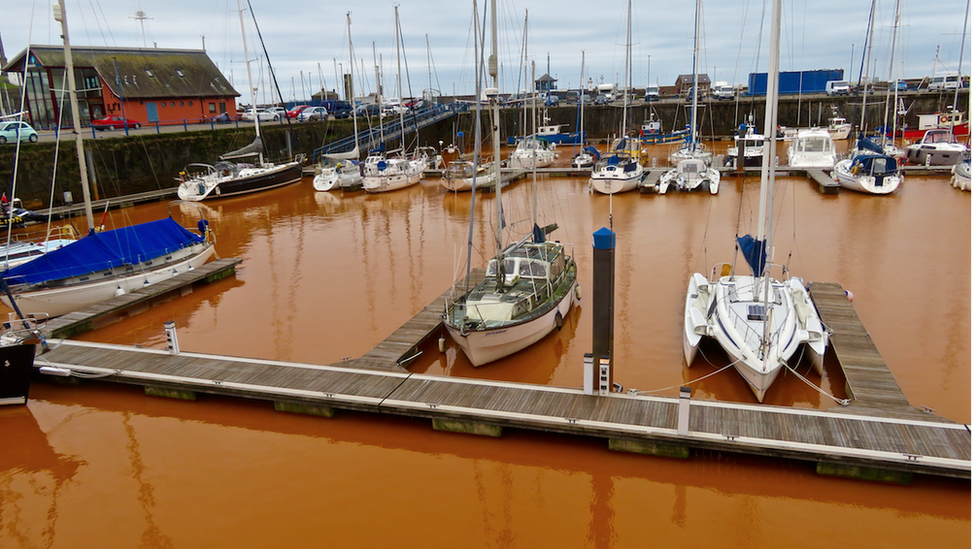
Talks are ongoing to try to find out what is responsible for the discoloured water at Whitehaven Harbour
Campaigners say a mining licence for a company due to open the UK's first coal mine for decades should not be renewed after water at a harbour turned orange.
Radiation Free Lakeland is against plans for West Cumbria Mining's deep mine, which were approved in December.
It fears discoloured water, seen by Harbour Commissioners entering Whitehaven Harbour from a culvert in Queens Dock, may be from old mines.
Investigations by the Environment Agency and Coal Authority are ongoing.
The company was given the go ahead by the government to become the UK's first new deep coal mine for decades and will provide coking coal for steel making.
In the past five years West Cumbria Mining Ltd has employed geologists and engineers to carry out exploration and analysis work.
This includes drilling boreholes, onshore and offshore, to recover coal samples.
It was granted an underground mining conditional variation licence by the Coal Authority - the latest term of it ran from June until October. It currently does not hold any licences from the Coal Authority.
Marianne Birkby, from Radiation Free Lakeland, said she feared exploratory drilling by West Cumbria Mining may have had an impact on the "fragile honeycomb of mines and opened the floodgates of contaminated mine water that was previously static".
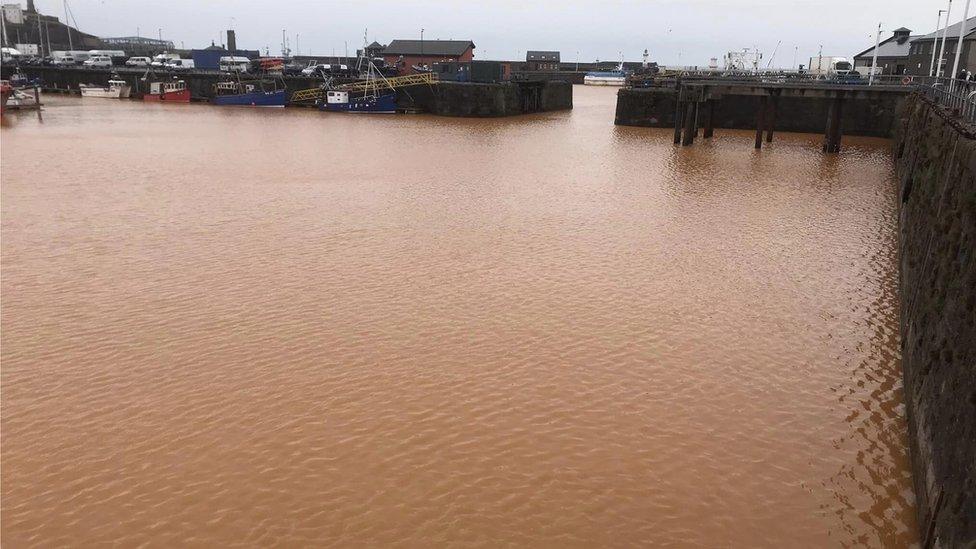
It's feared the source of the pollution could be linked to the network of old mines along the West Cumbrian coastline
The water first became discoloured in the harbour several months ago.
"This pollution in the harbour looks like mine water - given the failure of finding and stopping the pollution source, it would be prudent to call a halt to any new mining in this area as a matter of urgency," Ms Birkby added.
Campaigners - along with Westmorland and Lonsdale Liberal Democrat MP Tim Farron - have written a letter to the Coal Authority urging it not to renew West Cumbria Mining's conditional licence.
'Not historic coal mines'
West Cumbria Mining Ltd was approached for comment on the claims, but declined to comment.
The BBC has been told that the issues have been going on for some years but Whitehaven Harbour Commissioners chief executive John Baker, said there were "mixed memories" from colleagues on whether the water had turned colour before but "no-one can remember it to this extent and not for a number of years".
He added: "It's certainly not a recurring theme but there have been instances such as this around the UK - but unfortunately for us we are a leisure harbour and it's very visible from a tourism point."
A Coal Authority spokesperson said: "We are supporting the Environment Agency as they investigate the orange/discoloured water at Whitehaven Harbour and will use our skills and expertise to help them and other local partners as needed.
"The initial chemistry of the water suggests that it is not coming from the local historic coal mines.
"There are other potential sources of iron-rich (ochreas, orange) water in the area. We will continue to work with the Environment Agency as they determine the source."
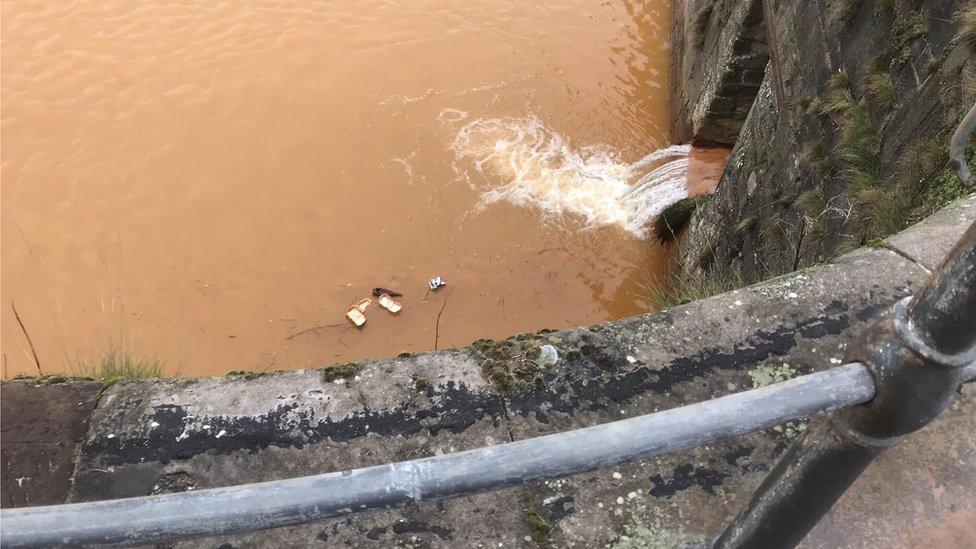
Talks are ongoing to find out the source of the culvert, identified as the spot where the polluted water is entering the harbour
Investigations carried out in December found no evidence of sewage pollution but results did show "increased metals in the water".
An Environment Agency spokesperson confirmed the results and said it was "actively investigating this further to determine the potential source".
Mr Baker said: "It remains frustrating from our perspective, we can see the culvert and it's not leaking all the time, and while it was clear at Christmas, it now seems worse.
"It's difficult to know the source of the culvert, it's a real challenge as it goes a long way, up to the top of Whitehaven, but it's affecting our business and we're desperate to get it resolved."
The harbour has about 85% of its 400 berths occupied and Mr Baker said looking out on to rust-coloured water was "not a pleasant environment", with some boat owners voicing their concerns to the harbour commissioners.
He said there were also concerns that when the harbour gates were open, polluted water could be washed out to sea.

Follow BBC North East & Cumbria on Twitter, external, Facebook, external and Instagram, external. Send your story ideas to northeastandcumbria@bbc.co.uk, external.
Related topics
- Published7 December 2022
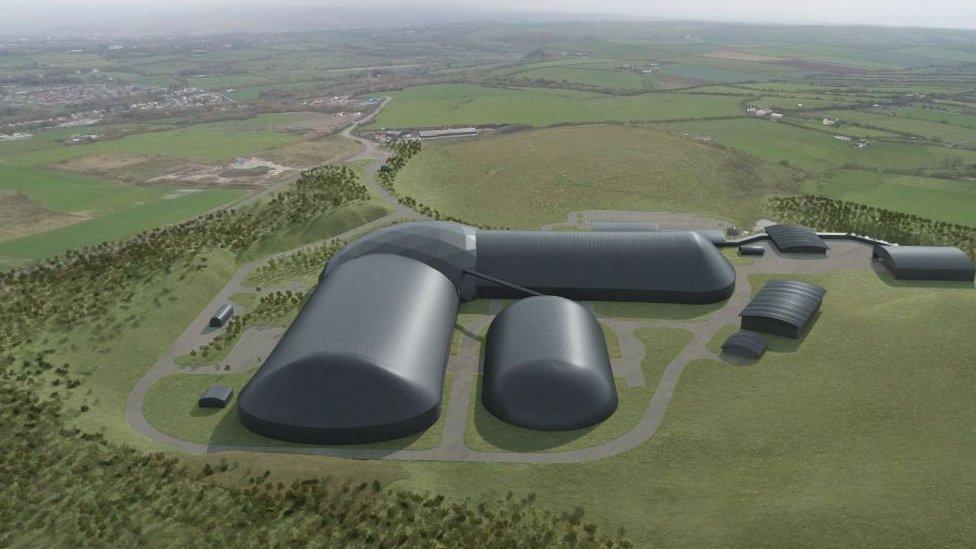
- Published29 November 2022
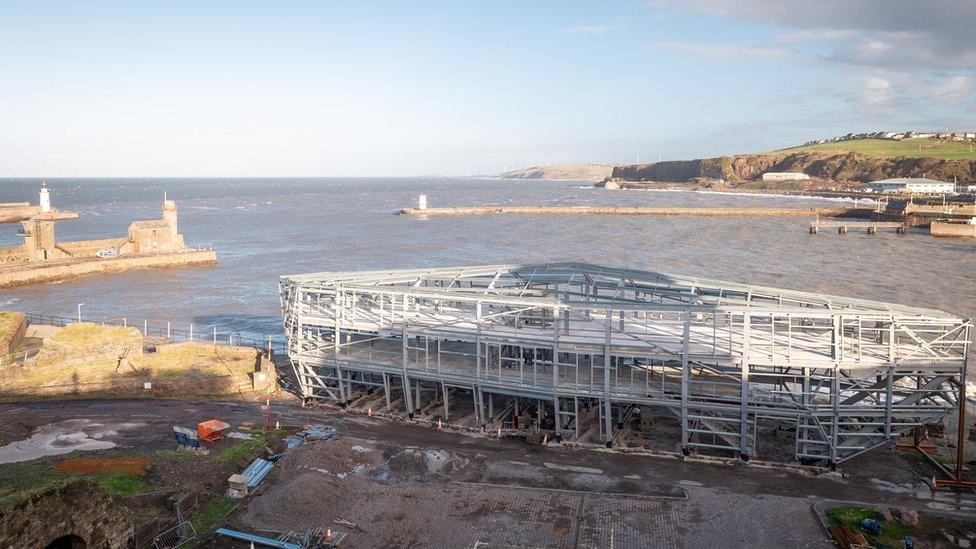
- Published12 April 2022
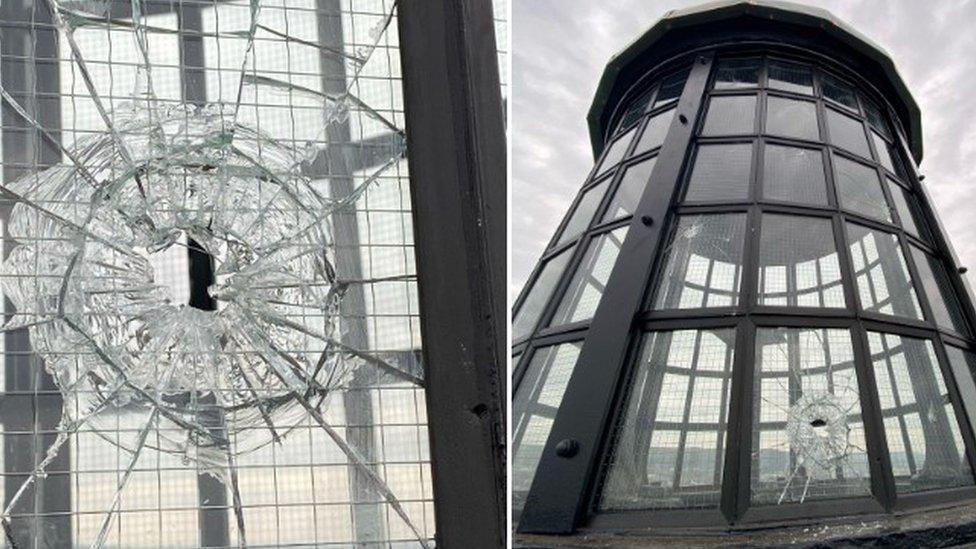
- Published27 September 2022
